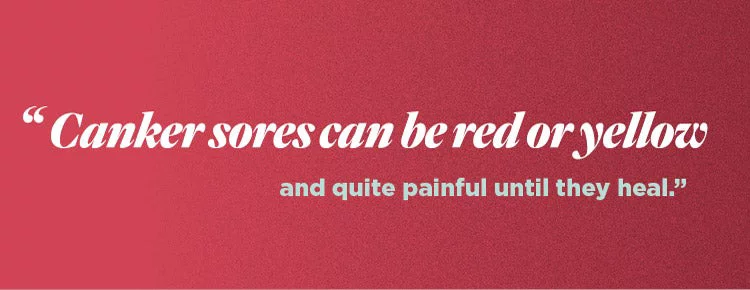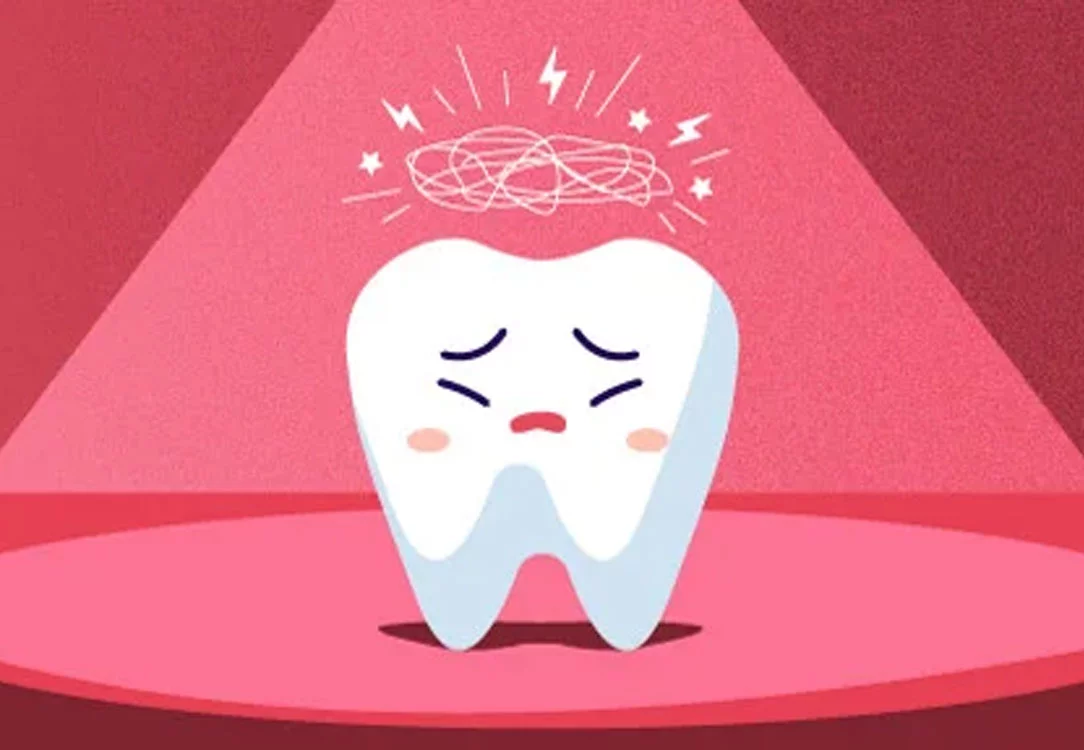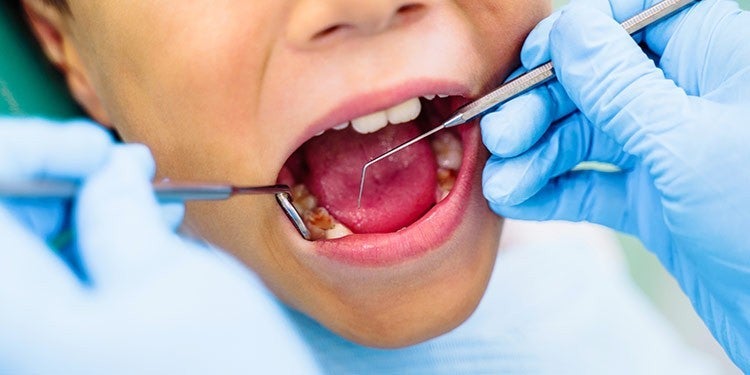Mouth Problems Caused by Stress
Stress can affect your oral health. Many people suffering from stress and anxiety find their dental health regimens aren’t regularly adhered to. Folks who are depressed tend to have poor eating habits. They consume foods higher in carbs, sugar, and caffeine. They are also more apt to skip regular dental visits. Both of those affect oral health.
Stress also weakens the immune system by increasing cortisol production. A weakened immune system allows bacteria to attack gums. That results in gum inflammation.
- Dry mouth
- Bruxism
- Canker sores
- Temporomandibular joint disorders (TMJ or TMD)
- Burning mouth syndrome
- Mouth ulcers (lichen planus)
Can Anxiety Cause Dry Mouth?
Can stress cause dry mouth? Yes, since the common denominator is mouth saliva.
Increased stress levels cause reduced saliva production. Saliva is critical for oral health for several reasons. It removes food particles from teeth and keeps them moist. Saliva also remineralizes tooth enamel while fighting bacteria. Reduced saliva levels lead to plaque buildup and an increased prospect of dental issues. Dry mouth can eventually lead to tooth decay and gum disease.
Stress Mouth Sores
Ulcers in Mouth from Stress
Can anxiety cause ulcers? Yes, ulcers – including those in the mouth - occur due to anxiety.
A mouth ulcer is a sore that can develop on the gums, tongue, inner cheeks, lips, or palate. They tend to be yellow or red in color. They can also be quite painful.

Can Stress Cause Canker Sores?
Canker sores come in two types: simple and complex. Exactly why they form is unknown. Simple canker sores are typically caused by stress or tissue injury. They tend to disappear in 10 days. Spicy and acidic foods aggravate them so avoid consuming those until the sore is gone. For additional relief, use an over-the-counter “numbing” agent.
Can Stress Cause Tooth Pain?
So can stress cause toothaches? The answer is yes. Toothaches can form in a variety of ways. Poor diets, brought about by stress, lead to plaque buildup and, if left untreated, a cavity. Gum disease can develop in the long term.
Stress also brings about issues such as clenching and grinding the teeth. Temperomandibular disorders can cause jaw and tooth pain.
Can Stress Affect Taste?
Stress significantly impairs a person’s ability to taste. The greater the stress, the greater that ability is impeded. Stress also makes people crave higher amounts of sugar and fat. That results from taste sensing reduction. Since the body can’t taste foods at its typical level, it craves higher amounts of them to recognize the typical taste level associated with specific foods.
Can Stress Cause Jaw Pain?
Stress is also linked to jaw pain. People tend to clench their jaws when stressed. Chronic jaw clenching leads to temporomandibular (TMD) disorders which involve the joints in the gums. TMD disorders lead to chronic pain in the jaw or around the ears. It also results in popping and clicking in the temporomandibular joint. TMD can cause a person difficulty in opening the mouth and chewing food.

Can Stress Cause Cavities?
Can Stress Cause Tooth Decay
Stress is a factor in tooth decay development. It causes the body to flush minerals that protect teeth while enhancing an environment in the mouth for acid and bacteria. Both of those play a role in cavity creation.
Tingling Lips and Anxiety
Anxiety disorder can also affect the skin on or in any part of the body. Symptoms include tingling, numbness, a pins and needles sensation or feeling like your skin is under anesthesia.
Numb Tongue and Anxiety
Teeth Chattering and Anxiety
Anxiety can cause teeth chattering, also known as bruxism. Being uncomfortable or scared that is anxiety-induced can make people subconsciously clench their jaw and grind their teeth.
Gingivitis Caused by Stress
Persistent levels of stress and/or anxiety can cause numerous dental health issues including gum disease. Gingivitis is the first phase of gum disease.
Find a Dentist Near Me
Consult your dentist to discuss any questions about oral health issues caused by stress. Or, check out The Smile Generation to find a dentist near you for all your oral health needs. You can read patient reviews, peruse staff bios, and schedule an appointment online with a click of your mouse.
Find your trusted, local dentist today!
Sources
Smile Generation blog articles are reviewed by a licensed dental professional before publishing. However, we present this information for educational purposes only with the intent to promote readers’ understanding of oral health and oral healthcare treatment options and technology. We do not intend for our blog content to substitute for professional dental care and clinical advice, diagnosis, or treatment planning provided by a licensed dental professional. Smile Generation always recommends seeking the advice of a dentist, physician, or other licensed healthcare professional for a dental or medical condition or treatment.








